Ten things to look out for in 2015
Despite numerous fake Facebook images, 2015 really is the year that Marty McFly and Doc travelled forward to in Back to the Future. They arrived on October 21st and ours was a world of flying cars, automated clothes and no lawyers. Sadly, the future isn't what it used to be back in 1989 when Robert Zemeckis directed the movie that saw a Delorean fire up its flux capacitor and get propelled through time. So what can we expect in 2015? Here are my unofficial, non-prophetic predictions about what the next year might have in store for us:
1. The further re-Branding and Springerfication of UK politics
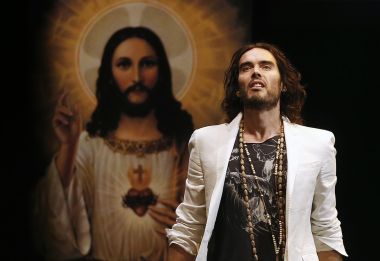
There are interesting days ahead in 2015 for UK politics. There was a record turn out for the Scottish referendum, particularly from young people, and there are now four parties genuinely contesting for votes across the UK. There have been nationalist parties in Scotland and Wales for a while now, but with UKIP somehow a serious competitor in England, the May elections will no doubt prove to be an interesting time. But add to this mix the wild card of a celebrity anarchist in Russell Brand, who advocates that there is no point in voting anyway, and even the BBC can't resist the "Springerfication" of political debate. A recent edition of Question Time featuring a battle between Brand and Nigel Farrage received a lot of media attention both before and after its airing, and it may well set the tone for the electoral debate in 2015. Keep your ears open for TV debates with tweetable soundbites as the mainstream politicians try and prove they have a personality. Sadly, the UKIP factor has meant an increased anti-immigration rhetoric coming from all the major parties in a bid to nullify UKIP's only clear political position.
2. A nation of Foodbanks, sheds and sheer Klass
Nearly a million people were given a food parcel in 2013-14, not in Cambodia or South Sudan, but in the UK. According to the Trussell Trust, which runs more than 400 banks, there has been a three-fold increase of usage in a year, which may only represent a small percentage of Brits who have some kind of food insecurity. Welfare cuts have shouldered much of the blame, so poverty in the UK ought to be part of May's election conversation, rather than tax cuts for the wealthy.
Meanwhile, former pop star Myleene Klass attacked Labour leader Ed Miliband in a TV interview, arguing that the 2 million pound threshold for the mansion tax is too low. Klass asked the opposition leader on ITV's current affairs show The Agenda: "Have you seen what that amount of money can get you? Often it's like a garage." The gap between rich and poor in the UK seems to be on the increase and who will control the political debate building up to the election? Perhaps it is an opportunity for the Church to keep on speaking up on behalf of the vulnerable and reset the agenda.
3. Terror escalation

Since 9/11, there has been an almost five-fold increase in deaths because of terrorism. Nearly 18,000 people died as a result of terror attacks in 2013, a 60 per cent increase from the year before, and 2014 sadly seems on track with this trend. Our news headlines have been full of cowardly attacks aimed at enslaving or killing children, most of which have been carried out by Islamic State, Boko Haram, the Taliban and al-Qaida fundamentalist militarised forms of Islam. These groups see the west as a defiling influence on the world and its intent to bring education to all a threat – hence school girls kidnapped in Nigeria and children blown up in Peshwar, Pakistan. Things don't look like they are getting any better soon, so be prepared for more of the same.
Additionally, the impact of online forms of radicalisation is growing – with many western educated young men and women hearing the call to leave their families to fight in Syria. To see this trend reversed we are going to need prayer, peacemakers and political engagement. The strongest voice of opposition has come from a 16-year-old woman, a victim of violence herself, but Malala's gracious tone yet steely determination may give us a model of how to fight terror. According to Aaqil Ahmed, the BBC's head of religion and ethics, there is a need for greater religious literacy. Understanding how people from different faith backgrounds see the world will help both our reporting and our diplomacy.
4. Internet everywhere and in everything
Back to the Future 2 foresaw auto-lacing shoes and double ties to be normal attire by 2015, but the likely fashion transition will be wearable tech. This was predicted for 2014 and the numerous smart watches and health bands that were released this year have begun to sell in reasonable numbers. Although Google Glass was released, the disruptive innovator that is Apple has not entered the smart watch market just yet, but with the likely release of the Apple Watch in March 2015, however, things are about to change.
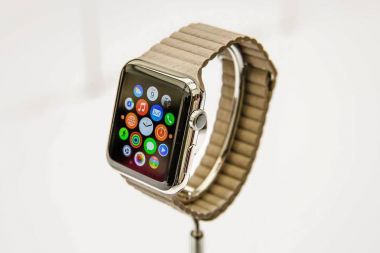
As a self-confessed technophile, the idea of more tech in my life always sounds like a brilliant idea, but I am aware there is a fine line between heavy digital usage and addiction. As we take the internet with us on our wrists, it begins to pervade more of our lives. This year NEST was the breakthrough technology that offered the convenience of bringing your central heating thermostat online, which is seen by many as being just the beginning of the normalisation of the smart home. Smart fire alarms, motion sensors, fridges and vacuum cleaners are set to make 'the internet of things' part of our daily lives – so watch out for more technology on us and around us in 2015.
5. Record Breaking Queen
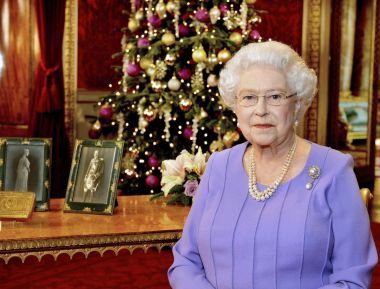
On 10 September 2015, Queen Elizabeth is due to become the longest reigning British monarch in history. Her Majesty's great-great-grandmother Queen Victoria reigned for 23,226 days and God willing this will be eclipsed next year. There was a time when the royal family's significance was questioned, but after the Golden Jubilee and the birth of Prince George, royal capital seems to be riding high.
Watch for more celebrations of our sovereign – my hope is that the Queen's clear Christian faith will shine through the commemorations. And perhaps having eclipsed Queen Victoria it is possible that retirement might be in sight for her majesty – will the Prince of Wales get his opportunity to be king?
6. The Force Awakens and vengeance reassembled
Following a 31 year gap it is possible that Star Wars is back (I am choosing to ignore episodes 1-3 as an aberration). After JJ Abrams' successful reboot of the Star Trek movie franchise and a fabulous 88-second teaser trailer, things are looking promising for what could be the movie event of the decade. George Lucas attempted to deliberately rewrite the monomyth, an idea he had picked up from a book called "The Hero with a Thousand faces", using the book as a blue print that gave him the structure he needed for his Star Wars epic. Many of the themes of Star Wars therefore resonate not just with Christianity, but with many other ancient stories, and perhaps these narrative echoes are a sign that we were all created to be part of God's true story of the universe. With the closing, for now at least, of Tolkien's epic tale of the Hobbit and the Lord of the Rings, and as a new chapter of Lucas' storyline opens – lets hope the Church can find ways to connect again with a world looking for a true story to live in.
7. Cyber warfare

Hacking scandals dominated the news this year; partly because one of them featured nude photographs of Jennifer Lawrence, but also because it feels like a new era of industrial and military espionage is upon us. With so much of our lives automated – GPS systems, autopilot, air traffic control software, our medical records, online shops and of course our banking details – the potential targets for attack are manifold. An editorial in the Observer put it well:
"The threat posed by cyber warfare is significant. It knows no boundaries, has no limits and is growing in frequency and potency. Missiles and shells have a fixed range; a bullet can only travel so far, and usually it is evident who fired it. But cyber attacks via the internet are global in reach, anonymous and untraceable by nature and hard to deflect."
They are relatively cheap compared to any form of direct military conflict and put the hackers in very little physical danger while they are capable of wrecking huge amounts of damage. So as our lives become more automated, expect more cyber attacks in the years to come.
8. Free Speech
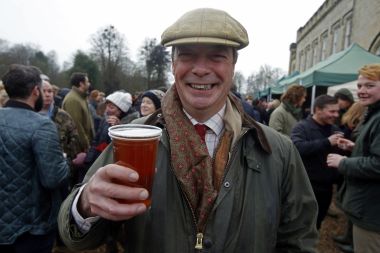
Roaming charges between European countries are due to be abolished in 2015. Hopefully this doesn't mean more work calls during family holidays in France, but instead an opportunity for Europe to pull closer together. Instead of a French pen pal for our GCSE revision practice, how about a phone-a-friend instead? And as it often costs less to fly to a European city than to travel cross-country by train, there's no reason why we can't up our game with church partnerships. Perhaps resurgence in language learning and greater church unity could ensue? It's better to talk, so will this new openness come in time to play a decisive role in the UK elections, as some seek to cut themselves out of Europe just at a time when things seem to be opening up?
9. Megachurch leadership vacuum post Bell and Driscoll
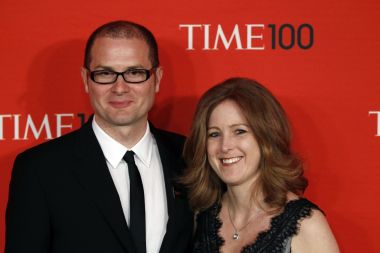
It wasn't long ago that Rob Bell and Mark Driscoll were the biggest names in the evangelical church around the world. Arguably they still are, but now for different reasons – neither of them are in church leadership. For some time megachurch leaders have been the dominant voices in evangelical Christian circles because of the huge audiences they command. Bill Hybels, Rick Warren and Tim Keller are all in good health and God willing have years left in leadership – but they represent different forms of more mainstream evangelicalism.
The media, both Christian and secular, like young radical voices and the cold war between Driscoll and Bell meant that different ends of the evangelical spectrum had a poster preacher to rely on for an outrageous sermon or an allegedly heretical book. Bell has just launched a new TV show on the Oprah Winfrey's network with a potential audience of 80 million, and Driscoll has a new website so perhaps we will see more from them soon. But nevertheless, the lack of figurehead for young radical conservatives and open evangelicals may mean new voices coming soon. Nature abhors a vacuum so be ready for new faces to pop up and replace them in the megachurch leader limelight.
10. End of the DVD, Blu Ray and CDs?
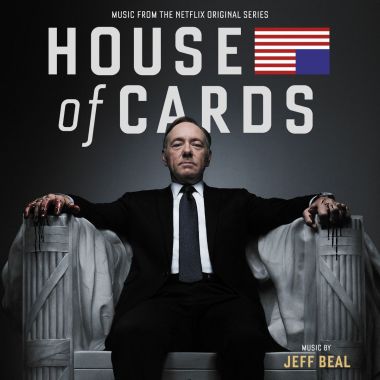
Now that streaming services are fast, reliable and easy to use, those bulky DVDs, Blu Rays and CDs are quickly becoming cumbersome. Is this the year we all switch to database subscription thanks to sites like Netflix, Amazon Instant Video and Spotify? Even the weekly drama could well become a thing of the past now that binge-watching is readily available. Netflix released the entire content of House of Cards season two in one go and most viewers were keen to watch it quickly rather than pace it out. Similarly, the hugely successful podcast Serial saw many listeners, myself included, choose to listen to the whole series in a very short amount of time.
With a combination of flagging viewing figures for reality TV shows – the X Factor final had the lowest in 10 years – and more content providers vying for our viewing time, the scene is set for some quality content coming to a provider near you in 2015. The BBC have an adaptation of "Wolf Hall" by Hilary Mantel that features Damian Lewis in January, Netflix has the third season of House of Cards ready to go and Sky have lined up "Fortitude" featuring Michael Gambon and Christopher Ecclestone – some say the most expensive British drama ever made. What's more, another challenger to Netflix, Sky and Amazon is on its way; Apple TV's latest incarnation could spell even more competition, and even better content, coming soon.











